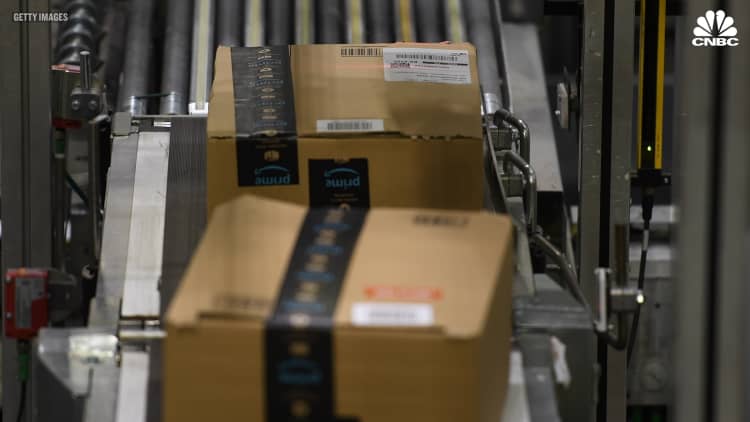On Monday, a U.S. District Court judge sentenced a Muncie, Indiana married couple to nearly six years in prison apiece for stealing more than $1.2 million in consumer electronics from e-commerce giant Amazon.
It's the end to a con that Erin and Leah Jeanette Finan, both 38, had been perpetrating for years.
"Their Amazon scheme was their 'job,'" the federal government said of the Finans in its press release. "Fraud had become a way of life."
Between 2014 and 2016, the Finans created hundreds of fake online identities and Amazon accounts. They then used them to order more than 2,700 electronics products — GoPro digital cameras, Microsoft Xboxes, Apple MacBooks, Microsoft Surface tablets and more, federal authorities said in a press release announcing their sentencing.
After ordering the products, the Finans would tell the company that the products had arrived damaged or that they did not work.
Amazon's famously friendly customer service policy allows customers to "receive a replacement before they return a broken item," in some cases, according to a release from the U.S. Attorney's Office, Southern District of Indiana.
Amazon keeps a close eye on customers' accounts to track any potential fraud. But the government said the Finans were able to get away with receiving the replacement products before returning the supposedly damaged goods by using their long list of false identities to simply abandon each fake account before their fraud was discovered.
So the Finans would ask Amazon to send replacement products at no charge. Once Amazon would comply, the Finans then sold the stolen merchandise to an accomplice, Danijel Glumac, 29, who sold the items to an entity in New York that would sell the products to the public.
The Finans even sometimes requested multiple replacement products per order — in one instance receiving two replacement Samsung smartwatches after claiming that both the initial smartwatch delivered, and its first replacement, were damaged, according to the Finans' plea agreement. By doing this, the Finans were eventually able to sell all three Samsung smartwatches (with retail value of roughly $180 apiece) to Glumac despite only actually paying Amazon for one of the items.
The Finans also often paid for products using gift cards in order to further cover their tracks.
In total, the full value of the stolen consumer electronics reached $1.2 million in a little over two years. The Finans netted roughly $750,000 from the scheme in that period, the government said. Glumac made roughly $500,000 as the middle-man selling the items.
But "Amazon closely monitors customers' accounts and orders for possible fraudulent activity," according to the U.S. Attorney's press release.
Eventually the Finans' con was discovered, and each pleaded guilty to charges of mail fraud and money laundering in October 2017. Glumac, who pleaded guilty to money laundering and fencing the stolen items, was sentenced to two years in prison.

The three defendants were also ordered to pay back the more than $1.2 million they made from the scheme.
Amazon now appears to be cracking down on fraud around its easy return policy, at least based on recent reports.
In May, The Wall Street Journal wrote about Amazon customers who have had their accounts closed by the company, including one who claimed he had only returned one item this year after returning four in 2017. (Amazon later reinstated his account.)
"According to former Amazon managers, the company terminates accounts for behaviors including requesting too many refunds, sending back the wrong items or violating other rules, such as receiving compensation for writing reviews. Cases are typically evaluated by a human after algorithms surface the account as suspicious," the Wall Street Journal reports.
An Amazon spokesman told The Wall Street Journal that the bans are sometimes enforced because "there are rare occasions where someone abuses our service over an extended period of time." The company also encouraged customers to contact Amazon if they believe their account was closed by mistake.
In 2016, The Guardian also reported that Amazon had been cancelling the accounts of customers who returned a suspicious number of items over a given period of time for several years.
Don't Miss:
Like this story? Like CNBC Make It on Facebook!



